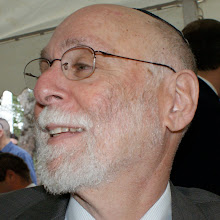
The 1904 English edition of Tub Taam opens with the following "Sketch of Aaron Zebi Friedman":
Some men, modest, pious and self-sacrificing are content to spend their lives humbly but reverently working for the Holy Cause of Religion. Who shall measure their life work, the life of any one of them? No human eye notices, no human heart sympathizes, holds true of many such a life work, or life. But often when the dust of the Beth Haim covers the worker, the value of his work is realized, and when the life is spent, the value of the life is discerned.
The work and life of Aaron Zebi Friedman eminently illustrates what we have stated.
Modest, pious and self-sacrificing, he spent his life humbly but reverently working for the Holy Cause so dear to him. While his piety, self-sacrifice and scholarship were indeed recognized during his life, it is even now that the value of his work and the inspiration of his life appeal to all who admire the qualities we have named, and who understand what work and life mean in human duty.
At a very early age he was acquainted with the contents of the Bible and Talmud. Cabbalistic works were studied by him, and his controversial skill in Talmudic subjects won for him the friendship of grand Rabbi Liberman, whose daughter Rebecca he subsequently married. At the age of seventeen, he was appointed Shohet of the city of Slavisk and the neighboring county, which post he held for several years. He was then called to fill a position as Rabbi and Shochet in Bernkastle-on-the-Moselle. Here he remained several years, beloved and revered by all who knew him. During this period he studied medicine, mainly to benefit the poor, many of whom recognized in him their benefactor. Too close application to his duties impaired his health and a sea voyage to America was ordered. The whole town turned out en masse to bid their beloved Rabbi God-speed, and to the day of his death he was in correspondence with the members of his flock, who wrote to him for spiritual advice and guidance.
His letters of credentials from leading Rabbis of Europe secured for him shortly after his arrival in this country the position of supervising some of the largest abattoirs in New York. He taught many pupils Shechitah and his seal was recognized by the Orthodox Jews of New York. In 1866, The Society for the Prevention of Cruelty to Animals, through its President, Mr. Henry Bergh, declared the Jewish method of slaughtering animals to be “cruelty – needlessly inflicted.” But Rabbi Friedman’s able defense in his treatise “Tub Taam” convinced the Society of the error of their judgment. “Tub Taam” was originally published in Hebrew and testimonials commending the book and indorsing the author’s careful treatment of the subject were received from leading rabbis and physicians of Europe and America. In 1876, the book was translated by Prof. Buttenweiser into English, but owing to the illness of the author, the translation was never placed on sale.
The book remains a lasting monument to his reverent love for our ancestral faith and customs; a testimony to his scholarship and an evidence of his zeal for the religion in which he was born, for whose interests he labored faithfully all his life and as a servant of which he yielded up his breath.
Shakespeare tells us that the “Evil which men do lives after them, while the good is oft interred with their bones.”
It is a satisfaction to know that the opposite is likewise true. This little book, long forgotten, rises, as it were, out of oblivion to resurrect and bless the memory of the earnest writer and the careful translator.
It had served its purpose in removing the mistaken, but sincere, opposition of the New York Society for the Prevention of Cruelty to Animals and preserved for the Orthodox Jew the right, so precious to him, of killing the animal according to the prescribed Jewish formula.
Lately the same ignorant opposition developed in Denver and it seemed as though the Jews must forego their cherished privilege of securing kosher meat.
It was then that “The American Hebrew” reprinted copious extracts from this work and forwarded it to representative Jews in Denver. The clever exposition of the subject and the invincible arguments the book contained, again carried the day, and Denver, like New York, withdrew its opposition.
It was then that the children of the writer and translator gladly availed themselves of the precious privilege of perpetuating this little work by having it reprinted. This they did, not only out of respect to the cherished memory of the dear departed ones, but also in the hope that it may continue to spread light upon this important subject and that it may in the future as in the past serve to convince Jew and Gentile alike that the Jewish dietary laws were based on broad scientific and hygienic principles.
Aaron Zebi Friedman was born in Poland, Adar 15th, 5582, (March 8th 1822), and died in New York City the 27th day of Iyar, 5636, (May 21st, 1876).
